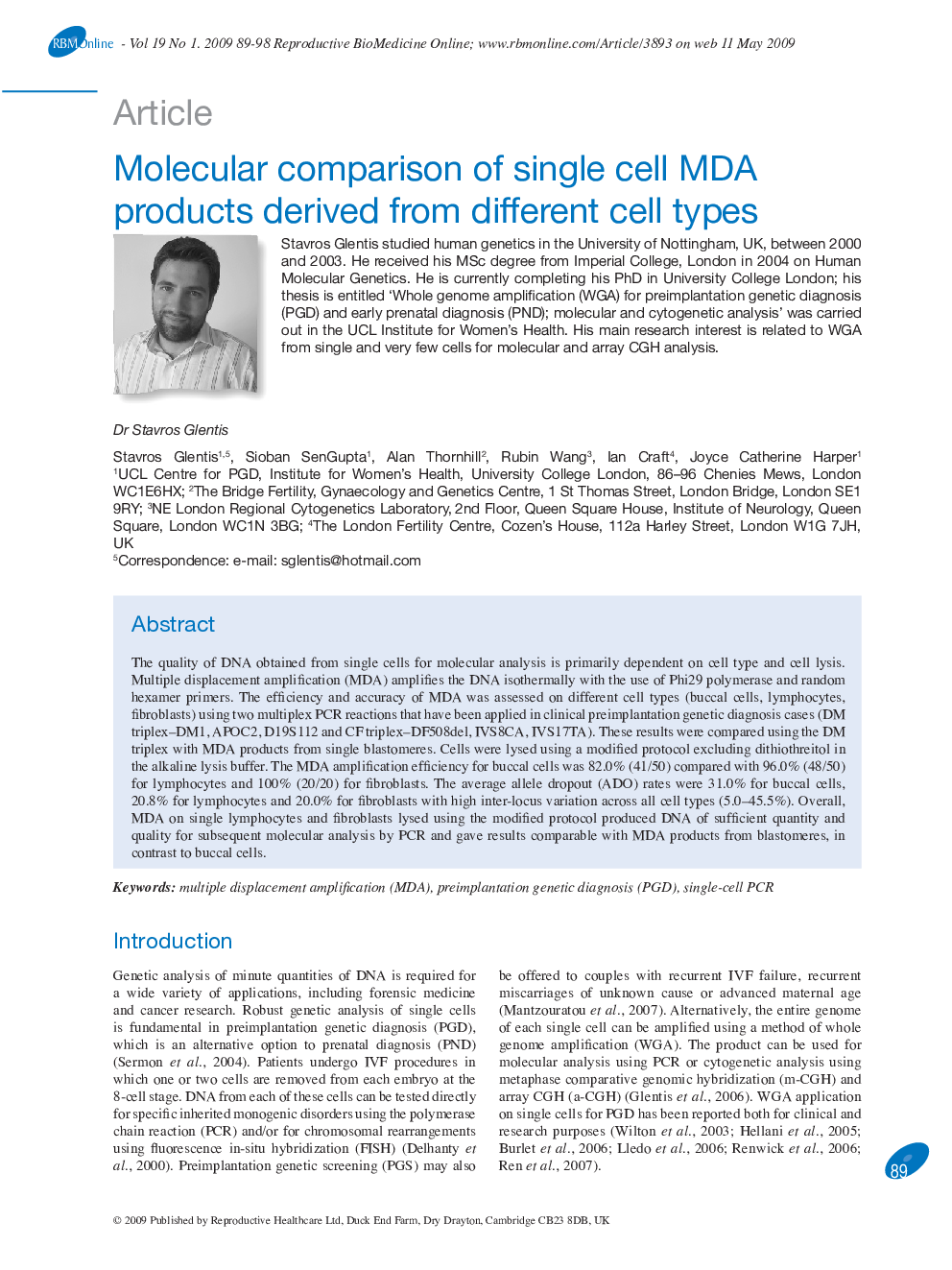| Article ID | Journal | Published Year | Pages | File Type |
|---|---|---|---|---|
| 3972264 | Reproductive BioMedicine Online | 2009 | 10 Pages |
The quality of DNA obtained from single cells for molecular analysis is primarily dependent on cell type and cell lysis. Multiple displacement amplification (MDA) amplifies the DNA isothermally with the use of Phi29 polymerase and random hexamer primers. The efficiency and accuracy of MDA was assessed on different cell types (buccal cells, lymphocytes, fibroblasts) using two multiplex PCR reactions that have been applied in clinical preimplantation genetic diagnosis cases (DM triplex–DM1, APOC2, D19S112 and CF triplex–DF508del, IVS8CA, IVS17TA). These results were compared using the DM triplex with MDA products from single blastomeres. Cells were lysed using a modified protocol excluding dithiothreitol in the alkaline lysis buffer. The MDA amplification efficiency for buccal cells was 82.0% (41/50) compared with 96.0% (48/50) for lymphocytes and 100% (20/20) for fibroblasts. The average allele dropout (ADO) rates were 31.0% for buccal cells, 20.8% for lymphocytes and 20.0% for fibroblasts with high inter-locus variation across all cell types (5.0–45.5%). Overall, MDA on single lymphocytes and fibroblasts lysed using the modified protocol produced DNA of sufficient quantity and quality for subsequent molecular analysis by PCR and gave results comparable with MDA products from blastomeres, in contrast to buccal cells.
